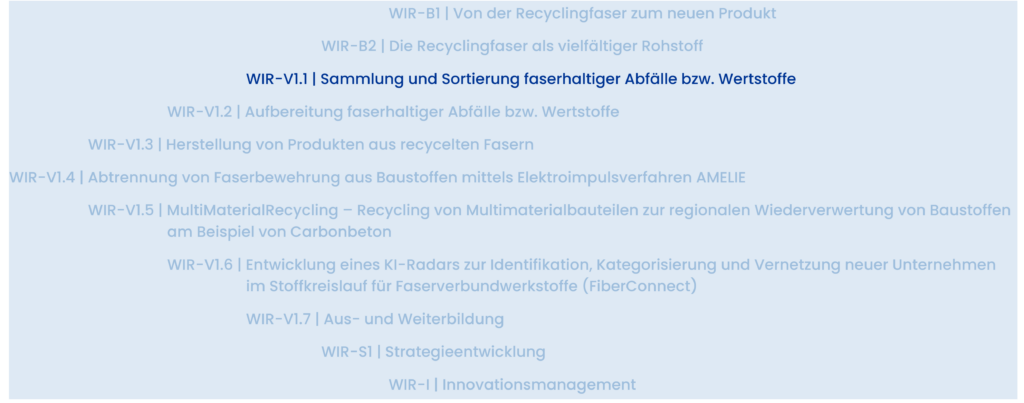WIR-V1.1 | Collection and sorting of fibrous waste or recyclable materials
Objective
The joint project WIR-V1.1 is dedicated to the localisation, collection and sorting of waste containing fibres from different branches and places of origin. A circular logistic and digitally supported collection system is being designed, implemented and established, whereby the recycling of fibrous waste and recyclable materials is being initiated and built up with special consideration of new business models. WIR-V1.1 thus makes an essential contribution to the consolidation of fibre-containing material flows, which will thus represent an economic relevance in the region “Elbtal Sachsen” for the first time.
Objective 1 – Design and establishment of a circular logistic system: Establishment of a digitally supported and practically implemented collection system to bring together fibrous waste quantities in the region “Elbtal Sachsen” so that they can be sent for processing in relevant quantities.
Objective 2 – Ecological sustainability: Measures to reduce material flow-specific CO2‑emissions with reference to the individual process stages of circular value creation in order to make new developments from the alliance sustainable within the framework of the national climatic targets.
Objective 3 – Economic sustainability: Measures to increase efficiency in the process stages of circular value creation in order to make the alliance economically sustainable over the runtime of the WIRreFa project.
Objective 4 – Initiation and development of a real circular economy for fibrous composites: Measures to network stakeholders in the region “Elbtal Sachsen” and to update the regulatory framework in order to make the handling of fibrous waste sustainable.
Objective 5 – Lowering of market barriers and development of new business models: Measures to strengthen the resilience of existing business through cooperation and new points of contact in the circular economy, thereby increasing the attractiveness of the location and identifying options for structural change.
Objective 6 – Establishment of new technical approaches: Provision of quality-sorted fibrous wastes to increase efficiency in the downstream processing of fibres.
Partners involved
Amand GmbH & Co. KG
H. Nestler GmbH & Co. KG
Leibniz-Institut für ökologische Raumentwicklung
Nehlsen Sachsen GmbH & Co. KG
Technische Universität Chemnitz – Professur für Betriebliche Umweltökonomie und Nachhaltigkeit Chemnitz
Technische Universität Dresden – Institut für Abfall- und Kreislaufwirtschaft
Technische Universität Dresden – Professur für BWL
UGN Umweltconsult GmbH
Coordination
Technische Universität Chemnitz – Professur für Betriebliche Umweltökonomie und Nachhaltigkeit Chemnitz
Technische Universität Dresden – Institut für Abfall- und Kreislaufwirtschaft
Run-time
2024-04-01 to 2026-03-31

